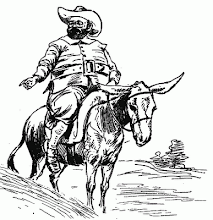I've started re-reading John Updike's novels since learning about his passing last week - and I've noticed for the first time how often this famously lean American writer refers to how much weight his characters carry.
I first discovered Updike when I read The Witches of Eastwick in college, and he immediately had me hooked. I bought all the earlier novels and story collections, and after that I always paid him the ultimate compliment: I bought every new novel right away in hardcover instead of waiting for the paperback a year later - and this was in the Dark Ages before hefty Amazon.com discounts, boys and girls!
Few writers have ever been as observant as Updike was, or as articulate in bringing his observations to life; every novel has entire pages where the language is so evocative that it takes your breath away (try In the Beauty of the Lilies). And he brought a notable work ethic to his craft, producing 60 books, at least one every year, usually alternating novels and collections of essays, poetry, or short stories. If I'd done my Ph.D in English instead of in Spanish, Updike would have been one of my top choices to write my dissertation on, except the sheer size of his output might have intimidated me.
Updike, it should be noted, was a thin writer. So many tributes published in the last week describe him as a "slender, slightly stooped man" or speak of his "tall, thin frame." He seems to have been a lean man who wrote lean prose and verse. Is there any connection? Possibly, although not conclusively. It does seem plausible that a man who spends half a century precisely crafting paragraphs and chapters which sometimes achieve near-perfection might also bring that same restraint and control with him to the dinner table. Likewise, publishing 60 books over the course of a literary career suggests a level of self-discipline which could keep unwanted extra pounds at bay, even when practicing such a sedentary profession as writing.
I'm also quite sure John Updike didn't take his - or anyone else's - thinness for granted; I'm reminded of the narrator's description of his wife in Roger's Version:
Esther keeps her figure trim by a very simple procedure: she weighs herself on the scale every morning, and if she weighs more than a hundred pounds she eats only carrots and celery and water until the scales are brought into line with ideality.
This portrait of mathematical self-discipline, of Esther Lambert demanding that her body conform to her mental image of it, is pure Updike: one of his novels' great themes, good New England Protestant that he was, is the struggle for control between the spirit and the flesh in one set of characters after another. This may explain why he so frequently pays attention to his characters' body types, and never simplistically, either: fleshiness can signify ripe sensuality in one individual but petulant self-indulgence in another. Being thin can connote taut athleticism or obsessive self-denial.
I never suspected that concentrating on my own body shape would make me a better reader! But nowadays, when I read how the ex-high school basketball star Rabbit Angstrom's body changes and ages throughout the four-novel cycle that might be Updike's masterpiece, or notice the very different bodies of the pleasureless adulterers in Couples or of the three Witches (and then Widows) of Eastwick, I can't help but pay attention.

No comments:
Post a Comment